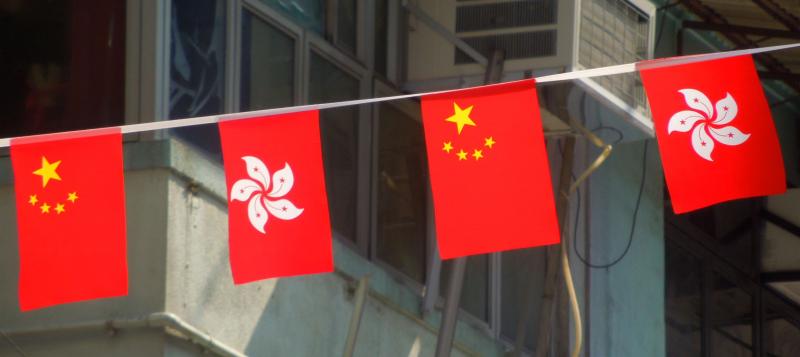European Telco Merger Momentum Gains Strength As Hong Kong’s Hutchison Buys O2 UK

Telefónica entered into an exclusivity agreement with Hutchison Whampoa regarding Hutchison's potential acquisition of the Telefónica subsidiary O2 UK for £10.25 billion in cash, valuing the deal at an estimated 7.5 times 2014 EV/EBITDA. The Hutchison-O2 UK deal — should it complete — will entirely redraw the telco landscape in the UK in terms of market shares. The acquisition of O2 UK will transform Hutchison from the smallest mobile operator with 7.5 million customers to the largest with 31.5 million customers and reduce the number of mobile operators in the UK from four to three.
This development follows on the heels of the announcement by Orange and Deutsche Telekom that they have entered into exclusive negotiations with BT Group regarding a potential divestment of 100% of their shares in EE, their joint venture in the UK. The increased merger activity is not surprising, and we predicted as much in our report Predictions 2015: Telecoms Will Struggle To Align To The CIO's BT Agenda. Still, these deals raise important questions for the European telecoms markets:
- What impact will this deal have on the British mobile market? Of course, market shares will not resemble anything like the market conditions just a year ago if the Hutchison-O2 UK and BT-EE deals close — which we expect. Both Hutchison and BT will dominate the UK mobile market with about 38% market share each, pushing Vodafone into a distant third place with 24% market share. But unless the new Hutchison comes up with radical new pricing plans, like T-Mobile US's data carryover plan, or a completely new business model, like launching embedded connectivity solutions, the impact is likely to be limited from a consumer perspective. Of course, warnings are already out there from consumer groups like uSwitch that fear the deal would reduce competition and could thus be bad for consumers. However, we don't share these concerns, as the overall downward trend on telecoms' pricing goes beyond the traditional telco dynamics. The attack on the telco business model by over-the-top players like Skype, Facebook Messenger, WhatsApp, and MVNOs will keep voice and data tariffs under control. Look at Germany, where the market also contracted from four players to three recently. Despite this consolidation in the German market, mobile service and data revenues remain under pressure. Rather, we believe that the British mobile market is likely to see actually more intense competition as non-telco players like Sky are pushing further into the communication and collaboration segment and financial services institutions compete with telcos in the payment arena.
- Will Hutchison engage in additional deals in its other European markets? The recent restructuring by Cheung Kong Holdings and Hutchison Whampoa into CK Hutchison Holdings could well indicate the desire by Hong Kong's billionaire Li Ka-shing for a more active acquisition drive of Hutchison's mobile activities in Europe. However, on closer inspection, we believe the options are limited. In Austria, Hutchison already merged with Orange in 2012. There are few additional acquisition targets left, as Deutsche Telekom is unlikely to sell its mobile division in Austria, despite its negative revenue growth rates there. The incumbent operator Telekom Austria will not give up the mobile division in its home market. In Denmark and Sweden, we don't see any of the operators eager to exit through a sale. Admittedly, Italy could potentially be an option for Hutchison to go after Wind Italy. Such a deal would be somewhat smaller than that involving O2 UK, but it could also be transformative, given the relative market shares. Wind's owner VimpelCom might well be open to such as deal. However, shareholders of CK Hutchison Holdings might not be terribly impressed by the prospect of investing significant additional funds in the European telecoms market — which is not exactly the world's hottest growth market.
- How will existing network-sharing arrangements be affected by these new ownership constellations? Network sharing is a widespread practice. These network-sharing arrangements are commercial agreements that usually involve competing telcos. Any merger activities have no immediate impact on these contractual agreements. Of course, any restructuring of the telco landscape would most likely also manifest itself in a renegotiation of network-sharing agreements, as operator strategies and alliances are evolving.
- What do these deals mean for the European telco landscape? We predict that about 50% of all telcos will either be bought or go out of business entirely by the end of the decade. It is therefore critical for today's telcos to stake their claims as winners in this market shakeup. In 2014 Deutsche Telekom already took a close look at KPN, before shifting its attention to the EE deal. But once the BT-EE deal closes, Deutsche Telekom is likely to revive the KPN project. Moreover, depending on the chemistry and the daredevil/visionary atmosphere during the negotiations between Orange, Deutsche Telekom, and BT, a potential alliance between these telcos with an intent of a full merger could well be in the cards. For Telefónica, the future lies primarily in Latin America, possibly as a joint entity with Telecom Italia. Yet, we expect Telefónica to hold on to its German operations, where it engaged in major merger activity itself recently. This leaves Vodafone pondering where its future lies. Could Vodafone be waiting in anticipation for AT&T to swing by once more to discuss a possible liaison?
The ripple effect of the UK deals will be significant for the rest of the European telco sector for years to come. And figures like Li Ka-shing, Carlos Slim, and Randall Stephenson are evidence that European telcos no longer control the initiative over their fate alone.
Update on January 27: Forrester clients interested in more information on this topic can also access the report "Quick Take: European Telco Consolidation Gains Further Momentum" published today.
After months of rumors, in May 2016 the EU decided to block the £10.5 billion takeover of Telefonica's O2 UK by Hong Kong's CK Hutchison, the owner of Three UK.
